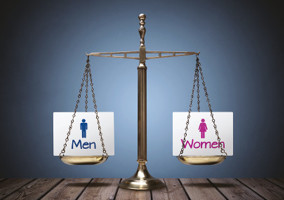Just over a third of CEOs leading the UK’s largest charities are women, according to a new analysis.
The Charity Chief Executives Survey 2023, published earlier this week in the March issue of Charity Finance, found that 32 out of the 93 chief executives currently leading the UK’s 100 biggest charities by income are female.
This is a decline from the 38 women who were in post at the largest 100 charities two years ago but an increase from the 29 female leaders in 2019.
ACEVO’s chief executive officer Jane Ide called the declining number of women leading the 100 largest charities “worrying”.
The new research contrasts with ACEVO’s Pay and Equalities Survey last year, which showed that the number of female CEOs in charities of all sizes had increased to 63%.
Just a third of CEOs are female
Charity Finance’s biennial survey shows that women now make up 34% of chief executives at the 100 largest charities in the UK.
They include Michelle Mitchell, whose charity Cancer Research UK ranked third in Charity Finance’s top 100, and Hilary McGrady of the National Trust which ranked fourth.
The survey also asked leaders to confirm their salary including bonuses and excluding pension contributions.
It found that the average salary for chief executives at UK’s 100 charities with the largest incomes has increased by £5,000 since 2021, to £175,000.
Diversity and social class data
This year’s survey expanded the number of questions around diversity and social class.
Of the 33 individuals who responded to the additional questions, the majority held one or more university degrees. Some 23 respondents said they attended state schools, while five said they went to private schools.
Twenty respondents self-identified as middle class and seven as working class.
Most described their ethnicity as English or British, with only three people identifying as non-white British.
Ide: Sector not making quick enough progress on diversity
Commenting on the findings, Ide said: “It’s worrying to see the declining number of women leading the largest organisations in our sector, and therefore the imbalance in representation.
“ACEVO’s latest Pay and Equalities survey carried out in 2022 found that organisational size strongly informs the relative median salaries for male and female CEOs, with women generally being over-represented at the helm of small charities and male peers more likely to lead larger organisations. This contributes to perpetuating the gender pay gap, which might also be exacerbated by other intersectional factors, such as race and disability.
“There is much to do to consider and address the systemic barriers to women and other minoritised groups being considered, appointed and remaining in post in the most senior roles. It remains the case the sector is not making progress at the pace necessary for civil society to be diverse, inclusive and equitable, and that investment in promoting inclusion and leadership development must be a necessity.”
Related articles












